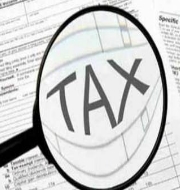Parliament Advances Key Tax-Related Bills
The Lok Sabha recently approved two vital indirect tax-related bills, addressing various aspects of the tax framework. The Central Goods and Services Tax (Second Amendment) Bill, 2023, and the Provisional Collection of Taxes Bill, 2023, each serve distinct purposes in enhancing the tax administration system.
Central Goods and Services Tax (Second Amendment) Bill, 2023
The CGST Amendment Bill focuses on aligning the Central Goods and Services Tax Act, 2017, with the Tribunal Reforms Act of 2021. The objective is to facilitate the operationalization of the Goods and Services Tax Appellate Tribunals (GSTAT) promptly. Key provisions include:
- Appointment Criteria: An advocate with a minimum of 10 years of substantial experience in litigating matters related to indirect taxes in the Appellate Tribunal is eligible for the position of a judicial member in GSTAT.
- Term Limits: The President, judicial members, and technical members of GSTAT shall hold office for four years or until reaching the age of 70 years (President) and 67 years (judicial and technical members), whichever is earlier.
- Age Limit Amendments: The amendment increases the age limit for the president and members of GSTAT, providing more flexibility for their tenure.
- Litigation Facilitation: Taxpayers currently litigating against GST demands in High Courts or the Supreme Court can withdraw cases and approach GSTAT once its benches start functioning.
Provisional Collection of Taxes Bill, 2023
The Provisional Collection of Taxes Bill, 2023, primarily focuses on obtaining parliamentary authority to provisionally levy and collect newly imposed customs and excise duties for a 75-day period. Key features include:
- Replacing the 1931 Act: The bill proposes replacing the Provisional Collection of Taxes Act of 1931 with a minor technical change.
- Immediate Effect Clause: The Bill provides immediate effect for a limited period, ensuring the prompt application of provisions related to the imposition or increase of customs/excise duties.
- Preventing Speculative Activities: By invoking this Act, the government aims to prevent speculative activities until the Finance Bill is passed, ensuring temporary stability in the tax structure.
- Effective Implementation: Considering that customs and excise duty changes often take effect at midnight, the Bill facilitates the immediate implementation of these changes.
Month: Current Affairs - December, 2023
Category: Economy & Banking Current Affairs • India Nation & States Current Affairs







